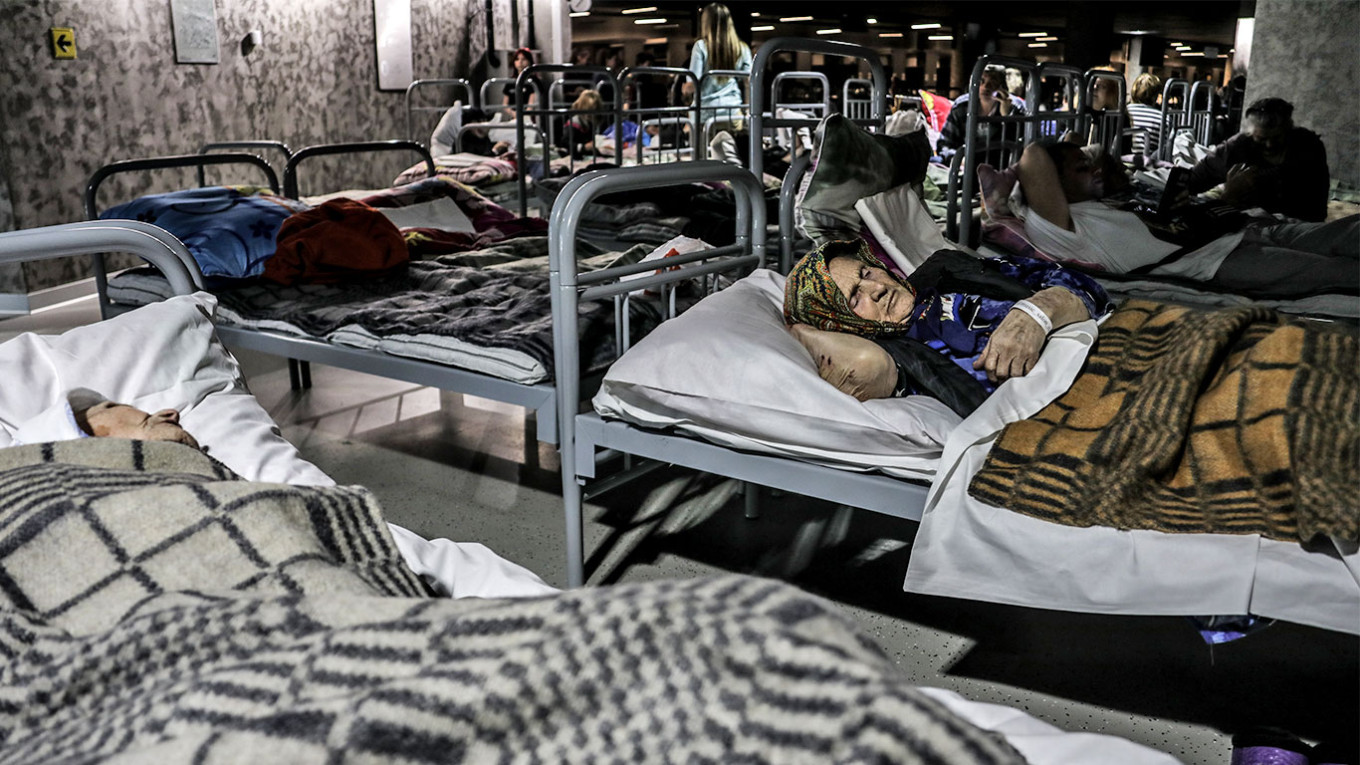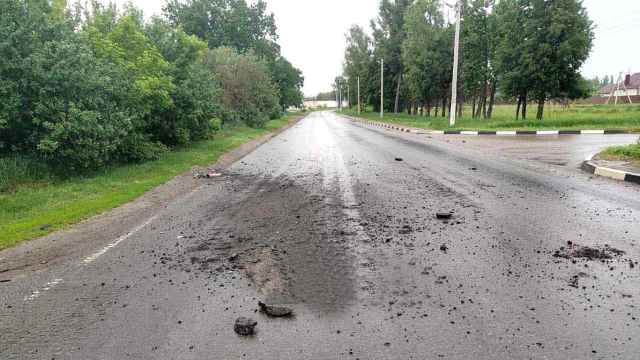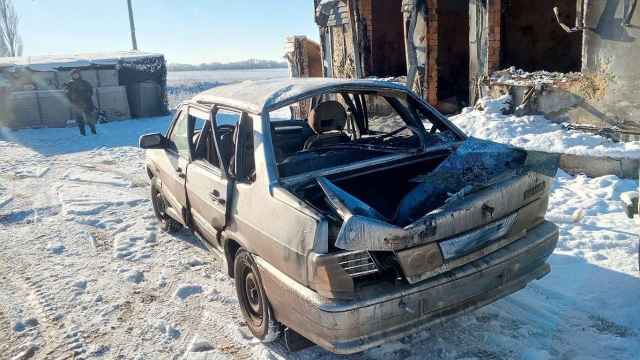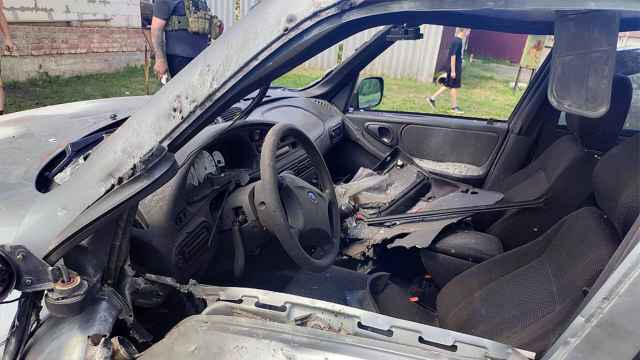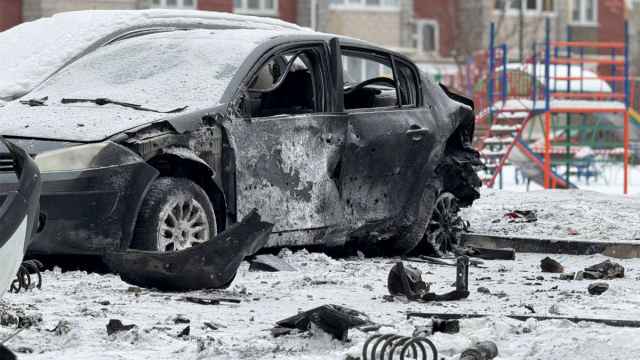Refugees from Russian border regions fleeing intensifying cross-border shelling and Ukrainian-backed incursions in recent days expressed despair at their future and anger toward officials in interviews with The Moscow Times.
“We have nowhere to go, we have nothing to live for, we don't know what is waiting for us. People are running away in panic,” said Daria, who left Shebekino, a border town of about 40,000 people, on short notice Thursday.
“It’s sad that for a year and a half, we had been trying to reach out to officials and federal TV channels and tell them that our town was being shelled and we were not safe.”
The departure of thousands of people from Shebekino and other border villages in Russia’s Belgorod region amounts to the largest displacement of Russians inside Russia in the 15 months since the Kremlin ordered its full-scale invasion of Ukraine.
Like recent drone strikes on Moscow and “partial” mobilization last year, the exodus looks set to become yet another way in which the war has come home for ordinary Russians.
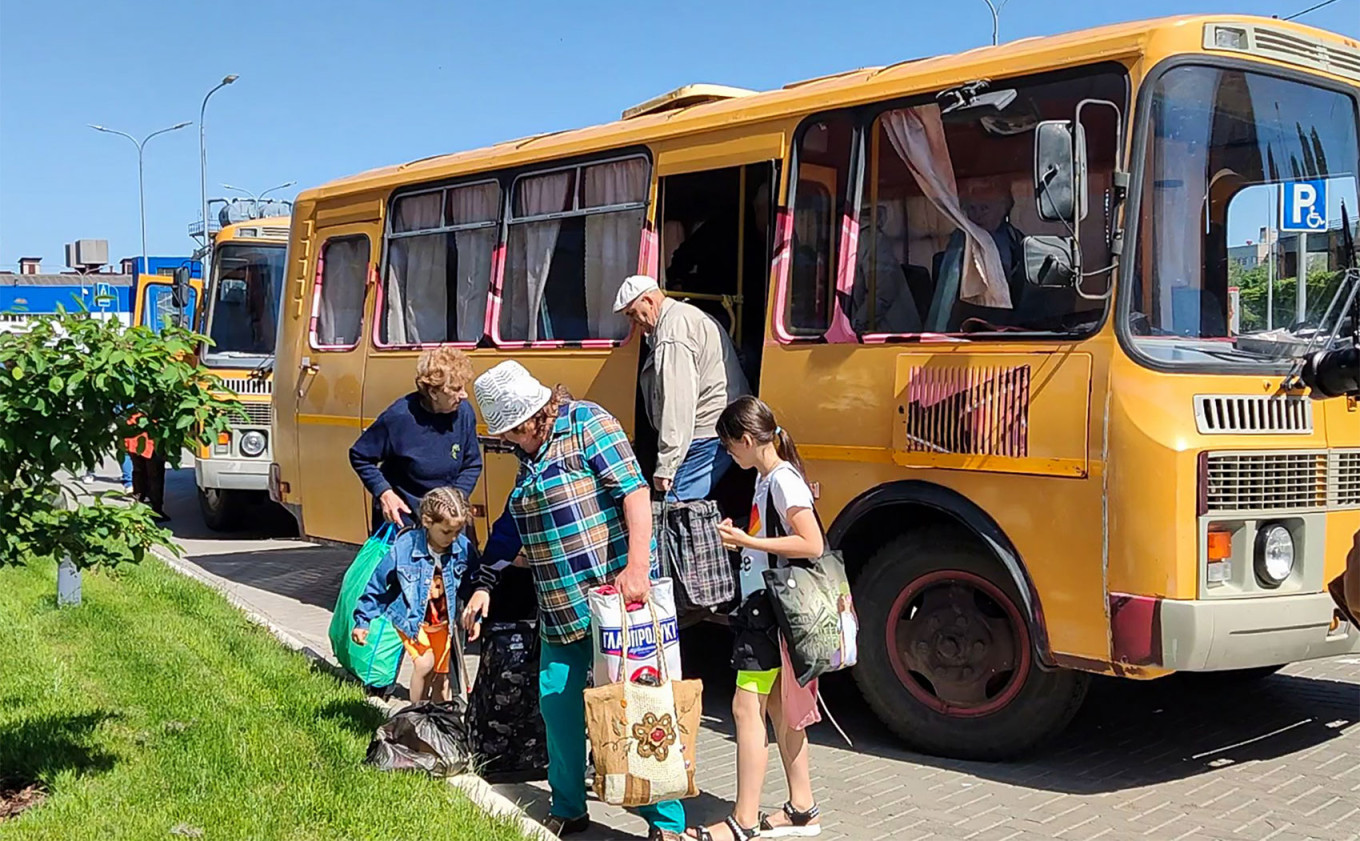
In addition to shelling from Ukrainian territory, the Belgorod region has been targeted by anti-Kremlin units made up of Russian nationals who have launched cross-border raids — apparently with Ukrainian military assistance.
While the Kremlin has not ordered a total evacuation of the border zones, local authorities have bussed some people living near Ukraine away from the fighting.
Others have fled on their own initiative. Local social media groups contain dozens of messages from those seeking help with transport and accommodation — or asking for assistance to evacuate elderly relatives.
One resident of Shebekino, who decided to leave when a powerful blast wave knocked out the windows in her house, told The Moscow Times she couldn’t reach an official hotline.
Daria — who left Shebekino on her own — said her experience was similar.
“We asked for help and were promised that the help would be provided. But we were left under shelling and two hours later we called again. Of five hotlines, only one line was working, we had to wait 24 minutes, but they only put us on another waiting list,” Daria, who also requested anonymity, told The Moscow Times.
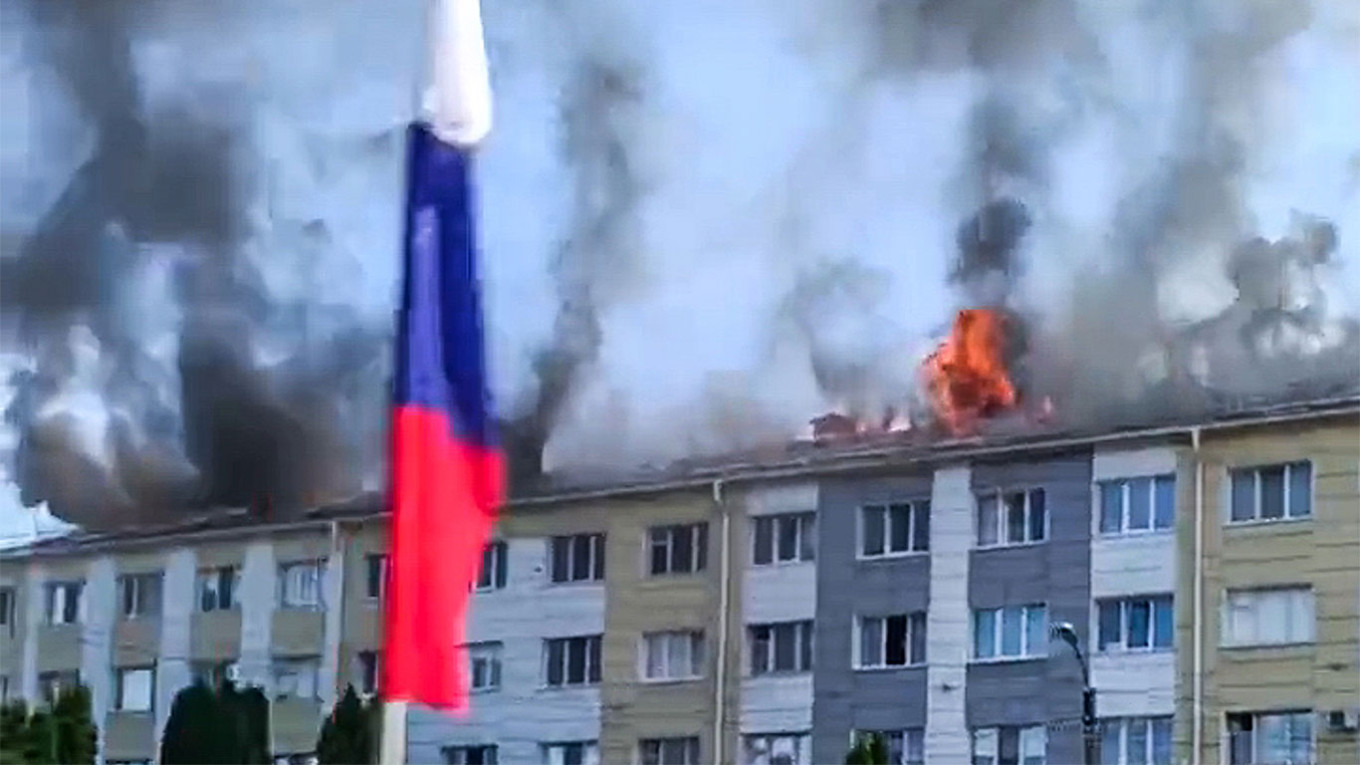
“We left with nothing and we don’t know whether we will return to our town.”
While the total number of those who have fled Belgorod region’s border settlements in the last 48 hours is unclear, Governor Vyacheslav Gladkov wrote Friday on Telegram that 2,500 Shebekino residents were in temporary shelters — including a sports arena — in the regional capital, Belgorod.
About 300 children have been evacuated further east to the neighboring Voronezh region.
Public figures in Russia, including the state-run RT network’s editor-in-chief Margarita Simonyan and media personality and ex-presidential candidate Ksenia Sobchak, were among those to offer to pay for temporary accommodation for refugees.
Gladkov has also announced the opening of official hotlines for people who needed help with evacuation from Shebekino and other nearby settlements.
President Vladimir Putin’s spokesperson Dmitry Peskov said Thursday that "the main question now is to provide assistance to people.”
However, some locals interviewed by The Moscow Times were critical about the authorities’ failure to defend the Belgorod region and the handling of the evacuation process.
“Ukrainians do not hesitate to fire with everything they have! We are just sitting and waiting to be attacked! Tell me, why is the air defense not working?... How long will it last? Can someone answer?” Nelly Klapchenova, a resident of Shebekino, wrote in a post on social network VKontakte on Thursday.
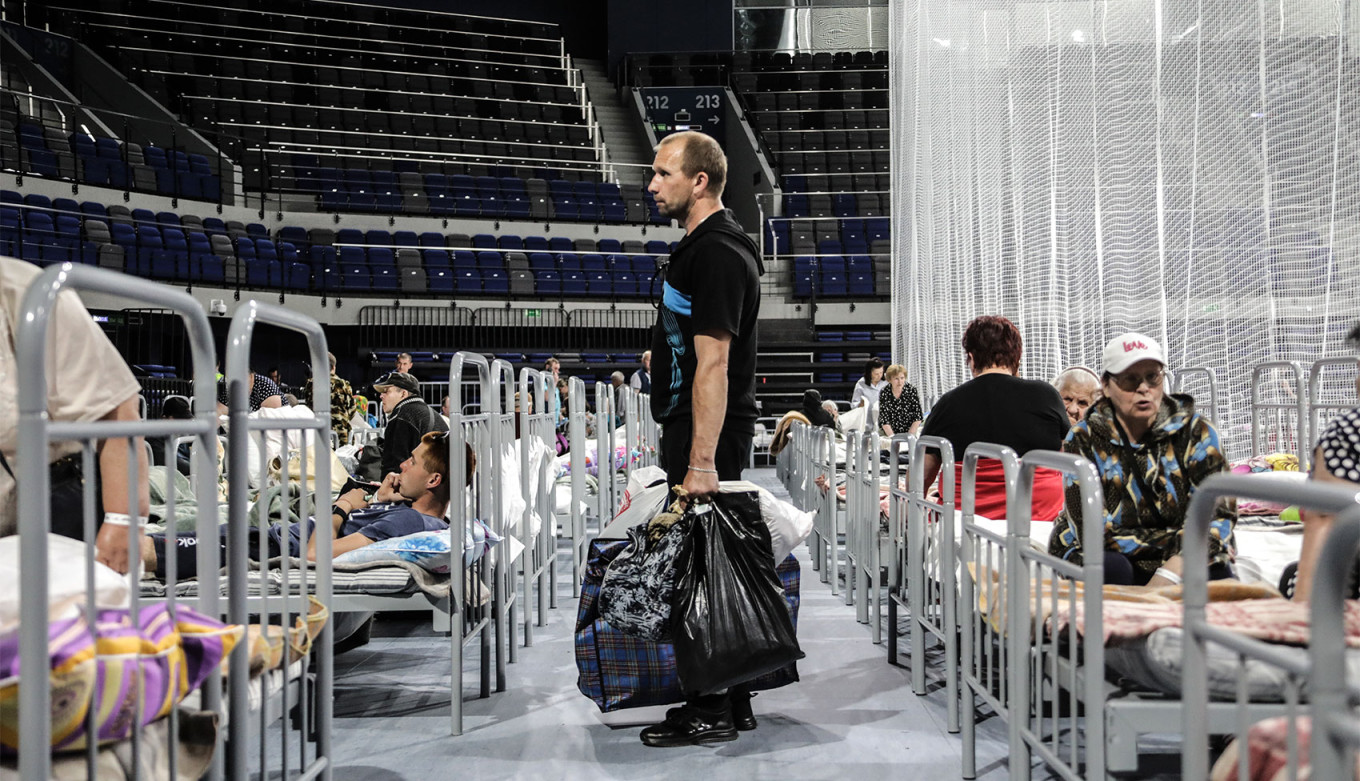
And there has even been some official disquiet.
A group of Communist Party lawmakers published an appeal Thursday calling on the government to evacuate all children from Russia’s border regions.
And Gladkov last week appeared to question the Defense Ministry’s handling of the attacks from Ukraine, admitting Monday that Russia was in a “state of de facto war.”
While Shebekino has come under sporadic shelling and drone attacks since Ukraine re-took its neighboring Kharkiv region last fall, the attacks have escalated dramatically in recent weeks ahead of what is believed to be an imminent Ukrainian counteroffensive.
Two women were killed in shelling near Shebekino on Friday, according to Gladkov, and one of the anti-Kremlin units behind the incursions, the Freedom of Russia Legion, claimed that fighting was ongoing around the village of Novaya Tovolzhanka.
At least 12 people were wounded the previous day in shelling that also saw a large building in the center of Shebekino catch fire.
There have been at least two incursions by Russian militias with apparent Ukrainian backing in recent weeks, with Russian forces claiming to be using war planes and heavy artillery to force the attackers back over the border into Ukraine.
The spreading fighting and wave of internal refugees means many people in Russia’s border regions are seeing the reality of the war for the first time, according to political analyst Dmitry Oreshkin.
“The population is experiencing what is called a pattern break or cognitive dissonance — it turns out that the war is real and no one is going to save them,” Oreshkin told The Moscow Times in a phone interview.
“People are feeling an aggravation of hatred towards the West as well as dissatisfaction with current officials.”
As the flight of people from Shebekino showed no sign of letting up, three locals told The Moscow Times on condition of anonymity that they had no idea what the future held.
“We lived in a beautiful and flourishing town on the border with Ukraine, but now there’s only pain, death and grief,” Daria said.
A Message from The Moscow Times:
Dear readers,
We are facing unprecedented challenges. Russia's Prosecutor General's Office has designated The Moscow Times as an "undesirable" organization, criminalizing our work and putting our staff at risk of prosecution. This follows our earlier unjust labeling as a "foreign agent."
These actions are direct attempts to silence independent journalism in Russia. The authorities claim our work "discredits the decisions of the Russian leadership." We see things differently: we strive to provide accurate, unbiased reporting on Russia.
We, the journalists of The Moscow Times, refuse to be silenced. But to continue our work, we need your help.
Your support, no matter how small, makes a world of difference. If you can, please support us monthly starting from just $2. It's quick to set up, and every contribution makes a significant impact.
By supporting The Moscow Times, you're defending open, independent journalism in the face of repression. Thank you for standing with us.
Remind me later.



